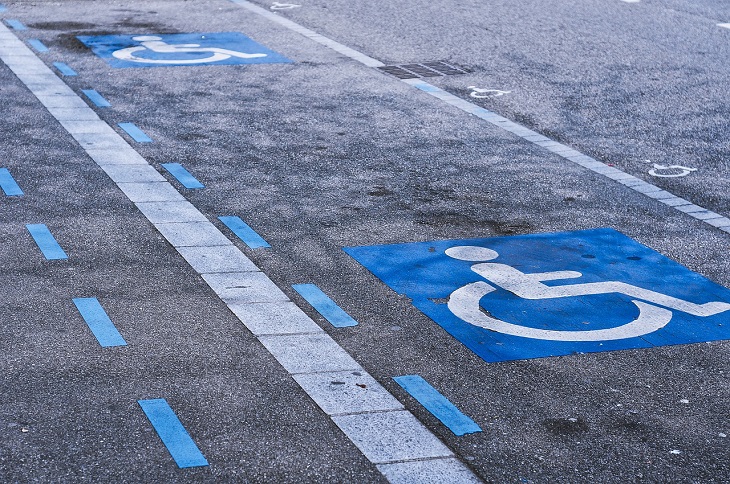Are you looking for more information on how to get a disability placard in Idaho? If you live in the Gem State and have a qualifying condition, the application process is straightforward. Idaho issues several types of disabled parking permits, including permanent disability placards, permanent disability license plates, and temporary disability placards. Read on to learn more about the qualifying conditions for a disabled placard in Idaho.
Qualifying Conditions For A Disabled Parking Placard In Idaho
If you’re a disabled driver or passenger who has one of the conditions mentioned below, you should apply for a disabled parking placard or permit, as you have the right to accessible disabled parking. There’s no doubt that knowing that you will be able to find reserved parking at the grocery store, hairdresser, or even at your job can make driving much easier and less stressful. In fact, in Idaho, you can access free metered parking in many urban areas with your disabled parking permit, so driving around the city with a permit will be a much smoother experience overall!
Having an Idaho disabled parking permit is the only way to legally occupy disabled spaces, so it’s important to receive your permit before using disabled parking spots. If you park prematurely in disabled parking places, or if you fail to clearly display your permit after you have received it, you run the risk of being fined by local law enforcement, as per Idaho disabled parking laws.
Your physician or medical professional will decide which disability placard best suits your medical condition; if you have a permanent illness or disability, you will generally receive the permanent variety.
How Do You Qualify For Disabled Parking In Idaho?
Qualifying conditions are not the same in every state, so it is important to discuss your condition truthfully and in depth with a licensed Idaho medical professional to ensure you receive the correct disability permit for you.
The good news is that in Idaho, there are numerous medical professionals who can assist you in your disabled parking permit application – usually a physician or physician assistant, or in some cases, advanced practice professional nurses may also be able to sign off on your application.
There are also conditions that may qualify you for an Idaho disabled parking permit that are not mentioned below, so be sure to thoroughly go over your condition/s during your consultation for full clarity.

Some of the conditions that grant you access to an Idaho disabled parking permit include:
Being a disabled veteran
If you have an injury or disability that can be directly related to your service in the military, you have every right to apply for a disabled parking permit. Please note that you need to have your disability/condition confirmed by the Boise Veteran’s Administration Regional Office before you can apply for this type of permit.
Loss of limb
If you have lost either a leg(s) or arm(s), you can avail of an Idaho disabled parking permit. This also applies to those who have not lost a limb but who have loss of mobility or use of their limbs.
Severe inability to walk over 200 feet without danger of falling or collapsing
Those who require the use of an assistive device to walk (such as a cane, wheelchair etc.) may also apply for a disabled parking permit. Keep in mind that most disabled parking spaces also have extra room on either side; this allows space for a wheelchair lift or ramp, or a vehicle adapted for disabled drivers.
Severely impaired vision
If you have impaired vision but are still able to drive and have a valid driving license, you can apply for a disabled parking permit.
Having a severe cardiac condition
Those with serious heart problems can typically apply for a disabled parking permit if their condition is serious and debilitating.

Ready to apply for your Idaho DMV disability placard?
Fortunately, in the state of Idaho, you have the option to undergo your consultation online. This is an easier option for those who struggle with mobility issues, or those who would find it more comfortable to talk to a physician from the comfort of their own home. (Dr Handicap can provide more information on setting up this consultation – simply get in touch for some guidance.)
Once you have your medical certification, you’re good to go! Send it in along with your Disability License Plates and Placards Form, either by mail or fax. This form also includes guidelines for application should you need some clarification of the process. You don’t even need to include a fee if you are applying for a placard (either permanent or temporary), as these are free; only disabled parking plates incur a fee, which is relatively inexpensive at $25.
The difference is that disabled parking placards or permits stay inside your car and must be displayed when your car is occupying disabled parking places, whereas disabled parking plates are on the outside of your vehicle and are therefore permanently visible. They are usually only granted to those with permanent disabilities, and can even be personalized (for an additional fee).
Featured image by Binyamin Mellish on Pexels







